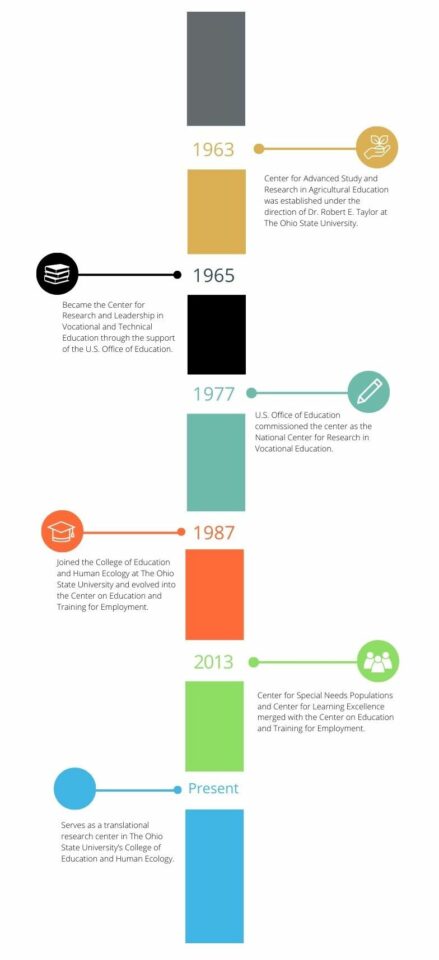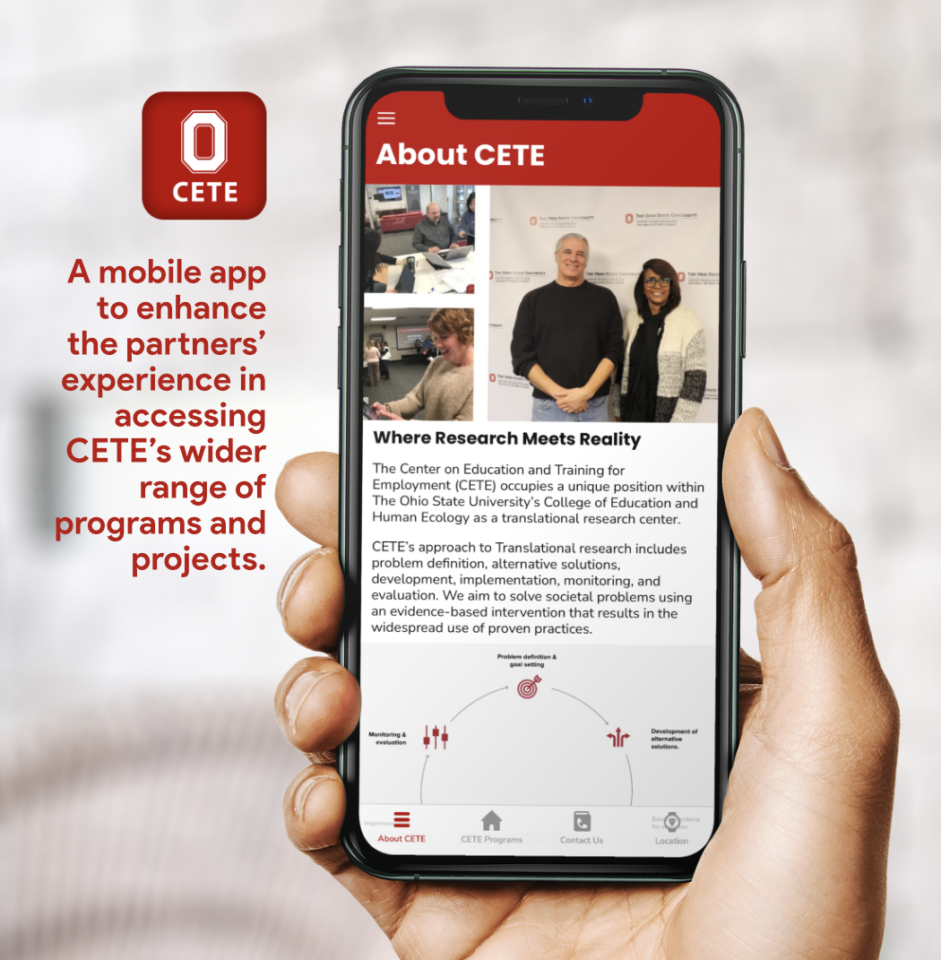Home » About
About
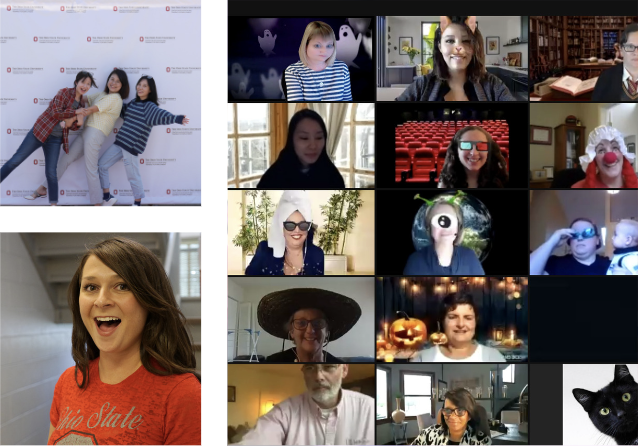
Driven by a steadfast commitment to our strategic vision, CETE is poised to emerge as a leading translational research center, garnering national recognition as an exemplar.
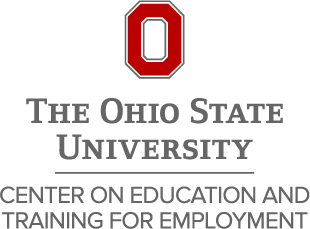
Where Research Meets Reality
The Center on Education and Training for Employment (CETE) bridges research and practice through work in assessment, equity, engagement and evaluation, corrections education, curriculum and training, professional learning for educators, and family engagement.
Our thriving workplace ethos embraces diversity and inclusivity, with Our Team‘s unwavering dedication and boundless creativity as the driving forces behind our endeavors.
Our work has influenced areas such as human trafficking, school, family, community partnerships, and adult education. Throughout our work, we have impacted the lives of families, children, youth, immigrants, special needs populations, and various professional groups (e.g., students, teachers, managers, and technicians).
The center is housed within the College of Education and Human Ecology Centers for Practice, Research and Policy (EHE Centers), a collective comprised of three other entrepreneurial hubs with longstanding roots: Crane Center for Early Childhood Research and Policy, Schoenbaum Family Center, and Walter E. Dennis Learning Center. Together, these centers provide research and leadership across the lifespan of human learning – from cradle to college and career – and seek to translate that research in ways that inform practice and policy, and ultimately improve human potential.
Mission & Vision
The Center on Education and Training for Employment is dedicated to translating research into actionable practices, cultivating a skilled workforce, and fostering thriving communities that prioritize well-being and economic prosperity. We support faculty, staff, and students in research and development and create engaging learning experiences in education, workforce transformation, and community development.
We envision a future where our translational research center drives positive societal change through research and practice excellence. Our work empowers individuals and organizations, leading to well-prepared individuals and thriving communities that are the bedrock of sustained well-being and economic prosperity.
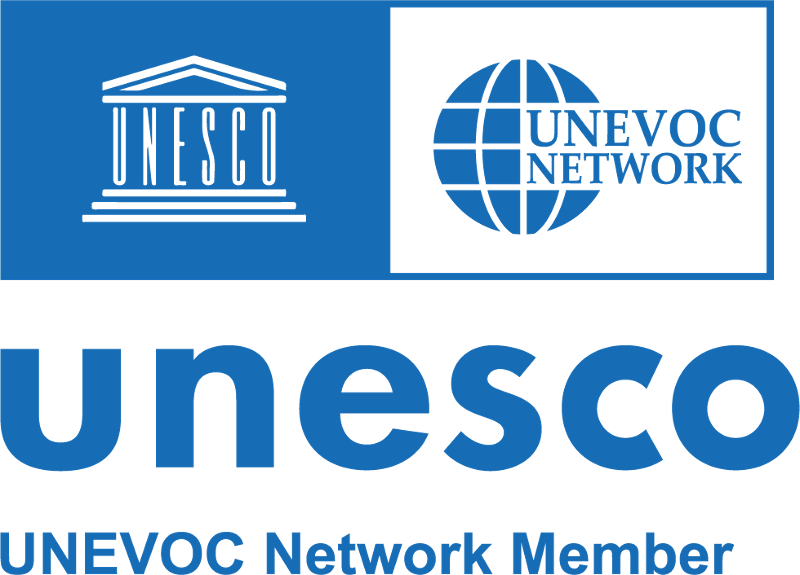
International Partnerships
CETE serves as a UNEVOC Center under the guidance of the UNESCO-UNEVOC International Center (International United Nations Educational, Scientific, and Cultural Organizations/ International Centers for Technical and Vocational Education and Training Center), and partners with the Colleges and Institutes Canada (CICan), for UNEVOC’s North American Cluster. This involves meeting monthly to share expertise, research, and news with an international audience, working with other UNEVOC and UNESCO groups and networks on North American activities, and identifying and proposing experts for international meetings and technical and vocational education and training (TVET) related initiatives organized by UNESCO.
CETE also participates in the international celebration of World Youth Skills Day each year, created by the United Nations General Assembly, to celebrate the strategic importance of equipping young people with skills for employment, decent work and entrepreneurship. World Youth Skills Day provides a unique opportunity for dialogue between young people, TVET institutions, firms, employers’ and workers’ organizations, policymakers and development partners.
Delve into the heart of our center’s activities. This interactive platform mirrors our center’s methodology, showcasing the expertise of our diverse team, which includes over 60+ senior leaders, program leads, associates, faculty, and graduate and undergraduate students.
Each program area within the CETE app highlights its most important projects, embodying our vision of a future where our translational research center drives positive societal change through research and practice excellence.
History
For 63 years, we have been a leader in the field now known as workforce development. The center’s long history attests to our ability to anticipate changing conditions and evolve as the nature of work has evolved while sustaining a focus on improving the field of workforce development. We continue to influence the dialogue among that system’s four sectors — lifelong education and training, public policy, employers, and the workforce.
